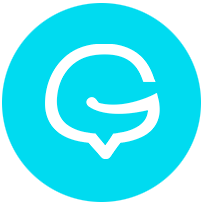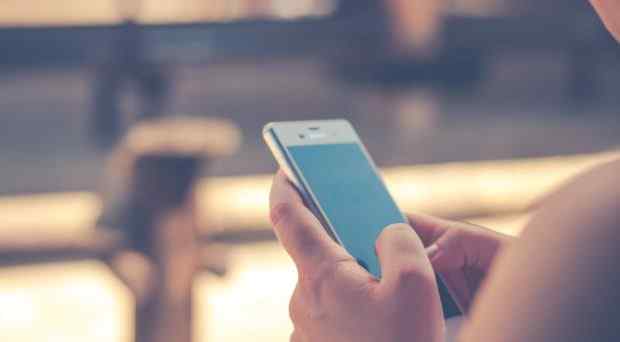As the business world prepares to emerge from the devastation of the coronavirus, we find ourselves in a place where “COVID-ready”, contactless, and socially distant interactions have become the new norm.
If you’ve started the process of reopening your business, the health and safety of your employees and customers is paramount. This can be a stressful and difficult responsibility. Incorporating remote work opportunities is one option, but it isn’t always feasible in all industries. Workplace precautions include implementing sanitation routines, safety protocols, conducting temperature checks as well as performing training and conducting health surveys.
How do we know we’re doing enough? Are physical temperature checks the best solution to keeping your workplace safe for employees and customers? Is routine sanitizing at the entrance enough?
Many health experts suggest that temperature checks could create a false sense of safety. If this is the only method used in the workplace, it could potentially be dangerous. Pre-symptomatic or asymptomatic transmission (where no fever is present) makes temperature screening less effective.
To put it into perspective, a recent study published in the Journal of the American Medical Association found that two-thirds of seriously ill COVID-19 patients didn’t have a fever. That’s not even considering asymptomatic cases. Thus, the virus keeps spreading.
How can we use modern technology that’s already available to us all to help our employees navigate this time while keeping each other safe?
Digital Daily Health Checks
Former FDA Commissioner Dr. Scott Gottlieb on a recent appearance on CNBC, mentioned that even with temperature checks and other on-site prevention techniques, businesses really should couple these measures with health questionnaires. He calls this a “layered approach.”
“If feasible, conduct daily health checks (e.g., temperature screening and/ or symptom checking) of staff and students.” – Centers for Disease Control and Prevention (CDC)
Health checks and questionnaires are great to keep everyone in the workplace, ie. employees, customers, guests, or vendors, aware of their health as well as to keep them vigilant of the symptoms they or others could experience if they are exposed to the virus.
These checks and questionnaires are also used to inform people of the extra safety precautions they need to take even with safety precautions in place, ie. following social distancing protocols and wearing masks. Employees will be more aware of their health as well as the symptoms of COVID-19 when they’re reminded daily.
While questionnaires can be powerful tools to identify health concerns and also to educate employees, there are additional risks when these are done on-site, such as on iPads. It adds to the risk of exposing employees to shared objects like pens and computers, or where the questionnaires are done in person, there is a risk of direct exposure. In cases where guests or customers need to complete a quick, on-the-spot health check, the use of personal devices and QR codes can eliminate the need for shared devices.
Digital daily health checks are a new way for businesses to conduct health checks, which should ask questions covering not only symptoms (e.g., “Have you had a loss of smell in the last 24 hours?”), but also to assess exposure (e.g., “Have you been in close contact with anyone who has tested positive for coronavirus in the last 24 hours?”). Furthermore, digital health checks keep employees informed and aware while eliminating the risk of further exposure and spread of the disease.
Completing health checks or questionnaires remotely via text messaging is safer and easier as employees can complete them at home via their personal devices, eliminating the need for shared devices and personal interviews.
To make digital health checks truly effective they need to be easy to complete, easy to understand, and easy to manage. Automated health checks ensure that they are always sent out and managers are immediately alerted of any potential risks, such as an employee mentioning any COVID-related symptoms or not responding to the questionnaire.
Delivering the questionnaire directly to an employee’s personal handheld devices via a common communication channel such as text messaging ensures that everyone receives the questionnaire and can complete it.
The US Department of Labor has specifically stated in their Guidelines on Preparing Workplaces for COVID-19 that “Employers should develop policies and procedures for employees to report when they are sick or experiencing symptoms of COVID-19.”
The response data needs to be collected, tracked and interpreted in realtime and that’s where artificial intelligence (AI) is critical, to ensure that nothing is missed by human error. This means that even if a fever isn’t detected, other symptoms or responses can still help stop the spread.
Automated daily health checks help employees feel safe in the workplace, keeps all employees aware and informed about the symptoms of the disease, and helps management ensure health and safety protocols are adhered to in these difficult times.

Glowing, Inc. is a leading US-based software company that specializes in AI-enhanced omni-channel guest engagement solutions. We provide some of the world’s leading brands in hospitality and other verticals an intelligent and unified platform to overcome the complexity of in-the-moment messaging and enhance guest experience–helping them win guest satisfaction and loyalty.
